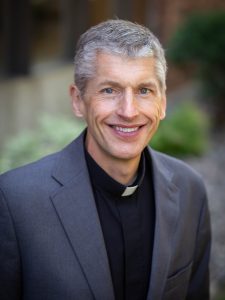 By Rev. Craig Pederson
By Rev. Craig Pederson
“I called to the Lord in my distress; the Lord answered by setting me free . . . It is better to rely on the Lord than to put any trust in flesh. It is better to rely on the Lord than to put any trust in rulers.” Psalm 118:5, 8-9
These words of the psalmist are often proclaimed by a pastor at the graveside, where family and friends prepare to commit their loved one to the earth. In those vulnerable moments, the pastor is entrusted to be the messenger of God’s comfort and hope in the face of grief.
But what happens when those who speak of the trustworthiness of God have their own credibility questioned? Are pastors to be trusted?
Two recent studies address this very topic. The Pew Research Center surveyed the opinions of Americans about their confidence in a variety of professions and institutions. In the Pew report, religious leaders came in sixth out of the nine professions surveyed. Only 55% of respondents said they have at least “a fair amount” or “a great deal” of confidence that religious leaders “would act in the best interests of the public.” Professions that engendered greater confidence were medical scientists (78%), other scientists (77%), the military (74%), police officers (69%), and public school principals (64%). Those who were lesser included journalists (40%), business leaders (40%), and elected officials (24%).
Another study, from Barna Research, reported a similar level of perception about the credibility of religious leaders. In response to the question, “Would you consider a pastor to be a trustworthy source of wisdom?” 57% of respondents said “yes, definitely” or “yes, somewhat.”
“The pastor is entrusted to be the messenger of God’s comfort and hope in the face of grief.”
In that same study, pastors were asked their perceptions of their own profession. In response to the question, “Would you say the community/neighborhood where your church is located considers you to be a trustworthy source of wisdom?” only 21% responded “yes, very much so” (another 62% said “yes, somewhat”).
Regarding their own congregations, the question, “Would you say your congregants consider you to be a trustworthy source of wisdom?” about two-thirds (67%) of pastors said “yes, very much so” while the remainder said, “yes, somewhat.”
I READ ABOUT THESES STUDIES with a bit of defensiveness because their findings do not match my observations and experience. Over the seven years I have had the privilege to serve in my position, I have witnessed rostered leaders in our synod show courageous, stabilizing, and innovative leadership in their congregations and the broader community in some incredible ways. And beyond the challenges of leading their churches in a rapidly changing culture, over the past two years these leaders were handed the additional complexities of a global pandemic, racial justice awakening, and economic upheavals.
But then I realize that my close-up “insider” view of pastoral ministry is not reflective of the broader population. They see pastors making controversial statements on social issues or in the political arena, or getting involved in financial scandals or sexual misconduct, and may generalize those actions to the profession as a whole.
“Pastors who faithfully live out their calls earn the trust of the congregation and the community.”
And I must also acknowledge that in our fallen humanity, there are pastors who do not always live up to the calling and expectations of their office. Some of the hardest work we do in the synod office involves situations where trust has been broken through boundary violations or other inappropriate actions by rostered leaders. Thankfully, this is not the norm – far from it.
Dr. Glenn Pakiam, the researcher and author of the Barna study, suggests, “the crisis of credibility is a symptom. The misuse of authority is the root cause. . . Credibility is the result of the good and right stewardship of power. When you understand the purpose of your power and the limits of your authority and act accordingly with humility, you earn trust and gain credibility.”
Pakiam’s assessment of pastoral trustworthiness is sobering, but I believe it is also encouraging. Pastors who faithfully live out their calls earn the trust of the congregation and the community. They are stewards of God’s promises, bringing comfort and hope in times of distress, and proclaiming a vision of God’s justice and peace for all the world. Pastors, we see you – and we are grateful for you!
